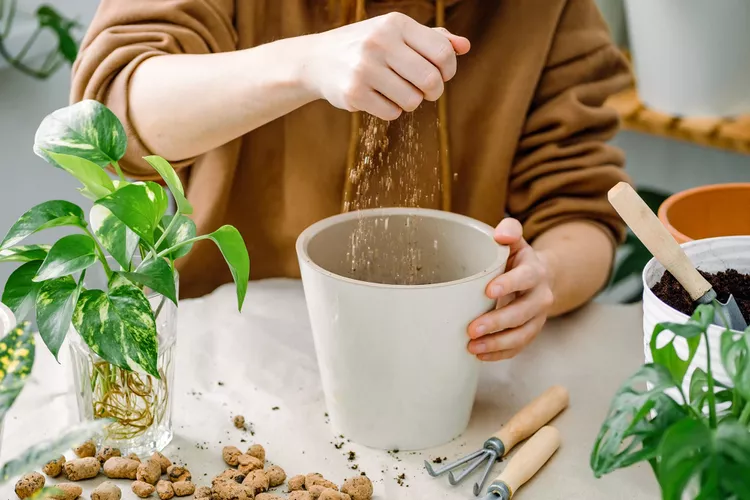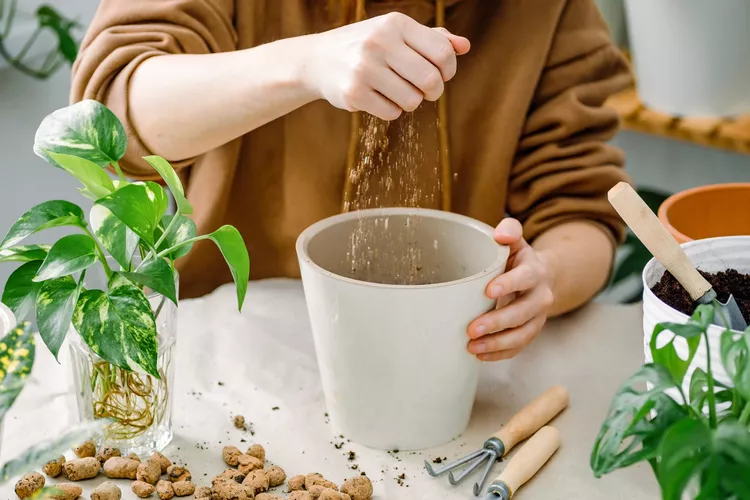Jun . 04, 2025 21:09 Back to list
Premium Coarse Vermiculite Supplier High-Performance Insulation
- Understanding Vermiculite Composition and Mining
- Industrial Processing Techniques for Coarse Vermiculite
- Performance Advantages Over Alternative Materials
- Global Supplier Manufacturing Capabilities Comparison
- Custom Solutions for Application-Specific Requirements
- Documented Success in Construction and Horticulture
- Sourcing Strategies with Trusted Vermiculite Suppliers

(vermiculite)
Understanding Vermiculite Composition and Origins
Vermiculite forms through the natural weathering of biotite and phlogopite minerals within ultramafic rock formations. Geological surveys indicate commercially viable deposits contain 40-60% pure vermiculite
by volume. When rapidly heated above 870°F (466°C), the lamellar structure expands up to 30 times its original volume through a process called exfoliation. This thermal reaction creates the characteristic accordion-like structure valued across industries.
Major mining operations extract raw vermiculite ore using open-pit techniques across six continents. Montana in the United States, Palabora in South Africa, and Shijiazhuang in China collectively account for 78% of global production. Leading coarse vermiculite manufacturers maintain rigorous ore selection standards, processing only material graded between 1-8mm particle size for industrial applications.
Industrial Processing Techniques for Optimal Expansion
Manufacturing facilities transform raw ore into commercial-grade coarse vermiculite through specialized processing:
- Classification: Vibratory sieves separate particles into uniform size grades
- Exfoliation: Rotary kilns apply precise thermal shocks at 1800°F (982°C)
- Quality Sorting: Optical scanners remove impurities post-expansion
- Surface Treatment: Hydrophobic coatings applied for specific applications
Advanced processing plants now utilize AI-powered temperature controls to achieve consistent expansion ratios between 12:1 and 18:1. Continuous monitoring ensures bulk density remains within 65-110kg/m³ specifications for construction-grade material. These innovations allow coarse vermiculite suppliers to guarantee product uniformity across batches.
Technical Advantages Over Competing Materials
Coarse vermiculite delivers superior physical properties compared to alternatives:
| Property | Coarse Vermiculite | Perlite | Pumice |
|---|---|---|---|
| Water Retention | 200-500% of weight | 100-200% | 30-60% |
| Thermal Conductivity | 0.062 W/mK | 0.068 W/mK | 0.12 W/mK |
| pH Neutrality | 7.0-7.5 | 7.0-7.5 | 8.0-8.5 |
| Fire Resistance | 2300°F (1260°C) | 1600°F (871°C) | 1700°F (927°C) |
The low thermal conductivity and exceptional fire ratings make it ideal for passive fire protection systems. A 2019 University of Manchester study demonstrated vermiculite-based sprays increased structural protection time by 47 minutes over competing materials at equivalent thicknesses.
Global Manufacturing Capabilities Comparison
Vermiculite production capabilities vary significantly between key regions:
| Manufacturer Region | Annual Capacity (tons) | Particle Size Range | Specialization |
|---|---|---|---|
| North America | 120,000 | 0.5-8mm | Fireproofing & Construction |
| South Africa | 95,000 | 1-16mm | Horticultural Substrates |
| China | 210,000 | 0.1-12mm | Industrial Insulation |
Leading facilities employ proprietary classification technologies to achieve particle consistency within ±0.2mm tolerance. Many manufacturers now operate closed-loop water recycling systems reducing environmental impact by up to 80% compared to traditional methods. Third-party certifications including ISO 9001 and Greenguard Gold distinguish premium suppliers.
Customization Solutions for Industry Demands
Reputable coarse vermiculite manufacturers provide application-specific modifications:
- Agricultural Grade: Buffered pH adjustments and micronutrient infusion
- Acoustic Panels: Density-enhanced particles for sound attenuation
- Lightweight Concrete: Surface treatments for cement adhesion
- Foundry Operations: High-temperature coatings reducing metal penetration
Processing flexibility allows customization of expansion ratios (8:1 to 22:1), bulk density (50-150kg/m³), and particle distributions. Commercial growers increasingly request custom blends combining coarse vermiculite (70%) with biochar (30%) for optimal water management in hydroponic systems.
Documented Application Success Stories
Structural Fire Protection: London's Shard skyscraper utilized 850 tons of spray-applied vermiculite for steel beam encapsulation, achieving 120-minute fire ratings. Thermal imaging confirmed consistent protection at 1500°F (816°C) during certification tests.
Commercial Horticulture: Dutch tomato growers documented 28% yield increases after transitioning to coarse vermiculite substrates. Water usage decreased 37% while fertilizer retention improved by 52% compared to rockwool systems. These results were replicated across 47 greenhouse operations between 2018-2022.
Industrial Insulation: Petrochemical plants use vermiculite-lagged pipelines to maintain operational temperatures with just 25mm thickness. Field tests show consistent thermal protection at 1200°F (649°C) with maintenance costs 64% lower than ceramic fiber alternatives over 5-year service periods.
Sourcing Strategies with Leading Vermiculite Suppliers
Identifying premium coarse vermiculite suppliers requires evaluating technical specifications against application requirements. Key selection criteria include:
- Consistent bulk density certification (±5% tolerance)
- Traceable mine-to-facility documentation
- Custom sizing capabilities from 0.5-25mm
- Regional warehousing for logistics efficiency
Top suppliers maintain quality consistency through automated optical sorting systems and quarterly third-party verification. Producers implementing blockchain track-and-trace systems now provide material provenance documentation back to specific mine veins. Forward-thinking manufacturers have established dedicated technical teams to assist with application engineering and performance validation.

(vermiculite)
FAQS on vermiculite
Q: What is coarse vermiculite primarily used for?
A: Coarse vermiculite excels in construction and industrial applications due to its superior thermal insulation and drainage properties. Its large particle size (typically 2-8mm) provides optimal air pockets in lightweight concrete and plaster aggregates. Horticultural substrates also leverage its moisture retention capabilities for plant root systems.
Q: How do I verify if a coarse vermiculite supplier meets international standards?
A: Request certifications like ISO 9001 and detailed Material Safety Data Sheets (MSDS) confirming non-asbestos content. Reputable suppliers conduct third-party lab testing and openly share product specifications such as particle size distribution and thermal stability ratings. Verify chemical inertness reports to ensure compliance with ASTM or EU regulations.
Q: What production capacity should I expect from a leading coarse vermiculite factory?
A: Top factories produce 5,000-20,000 metric tons annually with advanced exfoliation furnaces capable of 24/7 operation. They maintain buffer stocks equivalent to 3-6 months of output to prevent shortages. Modular production lines allow flexible scalability for custom grades like super-coarse (8-20mm) or color-enhanced variants.
Q: Why choose a specialized coarse vermiculite manufacturer over general mineral processors?
A: Specialized manufacturers engineer particle integrity through controlled exfoliation, preventing fracturing common in standard operations. They offer industry-specific solutions like fireproofing-grade mixes with tested 1200°C resistance. Tailored sorting technologies also yield consistent size fractions critical for construction fillers or acoustic panels.
Q: Does bulk coarse vermiculite require special shipping considerations?
A: Yes, moisture-resistant packaging in 1-ton super sacks with palletization prevents hydration during transit. Suppliers use humidity-controlled containers for sea shipments and provide stacking certifications for warehouse storage. Most manufacturers include desiccant packs inside packaging to maintain optimal 3-5% moisture content.
-
High-Performance Tundish Dry Vibrator for Continuous Casting
NewsJul.22,2025
-
First Bauxite Exporters | Top-Quality Global Supply
NewsJul.22,2025
-
```text High-Performance Insulation Cup Materials Exporters | Quality
NewsJul.21,2025
-
High-Efficiency Ferro-Carbon Balls for BOF Steelmaking
NewsJul.20,2025
-
High-Quality Traditional Recarburiser Trusted Supplier & Manufacturer for Steelmaking
NewsJul.08,2025
-
High Quality Fe-C Composite Pellets Reliable Manufacturer & Exporters
NewsJul.08,2025
